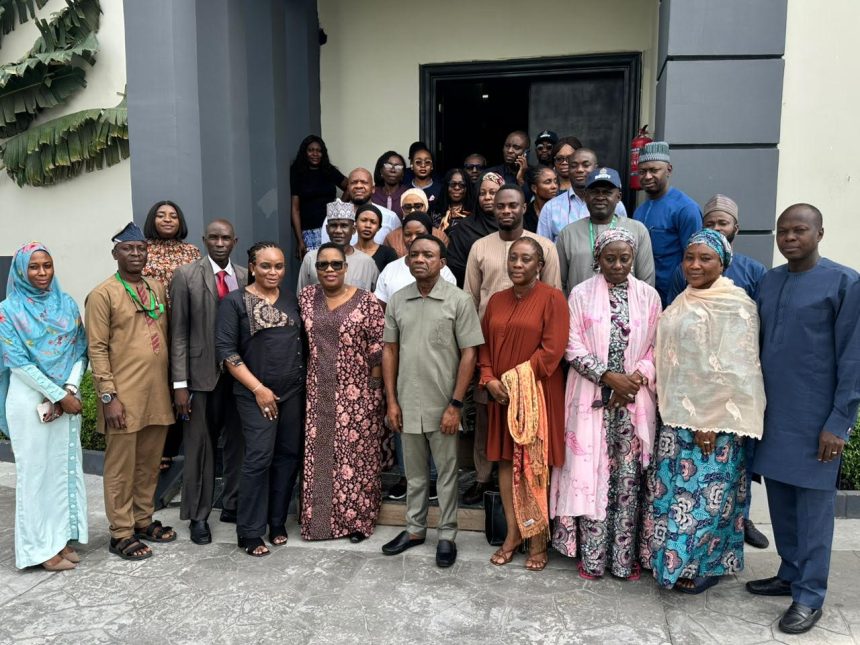The National Health Insurance Authority (NHIA) says its ongoing health coverage drive is anchored on quality service delivery and accountability, as the agency deepens enforcement of Nigeria’s new mandatory health insurance law to achieve universal health coverage.
Speaking at a one-day programme on strengthening institutional support for universal health coverage for self-paying agencies on Friday in Abuja, the Director, Formal Sector Department, Pharm. Nuhu Ajodi, who represented the NHIA Director-General, Dr Kelechi Ohiri, said the authority’s reforms are focused on rebuilding public trust and improving the standard of healthcare under the NHIA Act 2022.
“We understand the issue of trust. That is why we have developed a service-level agreement with providers through our Health Maintenance Organisations (HMOs) to ensure that enrollees get the care they deserve,” Ajodi said.
He explained that Nigeria’s health insurance coverage had remained at about seven per cent for nearly two decades until the new Act made health insurance compulsory for all citizens and legal residents.
“This legal change is a call to action for NHIA to engage stakeholders and enforce this mandate. Through this, we will move closer to universal health coverage for all Nigerians,” he added.
Ajodi revealed that over 21.1 million Nigerians are now enrolled under the scheme as of August 2025, driven by reforms anchored on four key pillars — expanding coverage, improving equity for the vulnerable through the Basic Health Care Provision Fund (BHCPF), enhancing quality through strategic purchasing, and unlocking private sector participation.
He said NHIA is also introducing targeted programmes such as the obstetric fistula care initiative and emergency care intervention to remove financial barriers and support women facing life-threatening conditions.
On the issue of drug quality, Ajodi clarified that, “In social health insurance, we don’t use branded drugs because of cost. But unbranded drugs are not fake. They undergo strict quality checks and are distributed only through accredited facilities.”
He emphasised that NHIA-accredited hospitals maintain strict standards, adding that mechanisms are in place to address service lapses.
“No professional would buy fake drugs from unauthorised markets. Enrollees should rest assured that they receive safe and effective drugs from approved facilities,” he said.
Ajodi further urged government agencies to promptly fulfil their premium payment obligations.
“Health insurance is based on premium payment. Without premium, there is no cover — just like car insurance,” he stated.
Also speaking, Ogboi Juliana, Assistant Desk Officer for the National Health Insurance Scheme at the Raw Materials Research and Development Council (RMRDC), described the engagement as enlightening.
“The programme is an awareness session to educate MDAs about their roles and responsibilities. It helps us understand how to channel complaints and ensure staff get the right care,” she said.
She expressed optimism that the sensitisation would improve service delivery.
“After this training, I expect to access drugs easily, be attended to promptly, and get original medicines. Every MDA must pay the mandatory five per cent contribution so that even staff who cannot pay for themselves can still access care,” she added.
The NHIA reaffirmed that its reforms are designed to build a transparent, efficient, and trusted health insurance system that guarantees quality and accountability across Nigeria’s healthcare sector.
ALSO READ TOP STORIES FROM NIGERIAN TRIBUNE
WATCH TOP VIDEOS FROM NIGERIAN TRIBUNE TV
- Relationship Hangout: Public vs Private Proposals – Which Truly Wins in Love?
- “No” Is a Complete Sentence: Why You Should Stop Feeling Guilty
- Relationship Hangout: Friendship Talk 2025 – How to Be a Good Friend & Big Questions on Friendship
- Police Overpower Armed Robbers in Ibadan After Fierce Struggle





